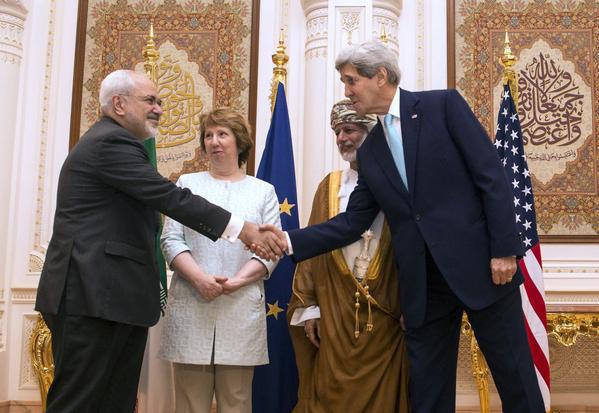There is less than one week till the new round of nuclear talks resume between Iran and P5+1 in which a comprehensive and mutually agreed upon agreement probably will be reached. Different predictions, sometimes being contradicted, have so far been made and still are going on. Through the last round of negotiations in Muscat in previous week the comments, analyses and reports on this issue had reached its peak, because there was the probability that Muscat talks would lay fair and proper grounds for the comprehensive agreement on 24 November. Though no details of the Iran- US talks were leaked, US Secretary of State John Kerry’s shuttle to Oman capital did make it anybody’s guess that the negotiations should have reached a critical and sensitive stage encouraging Mr. Kerry to visit Oman twice within 48 hours. Thereafter, the unofficial and unexpected visit of Oman Foreign Minister Yusuf Bin Alavi caused strong rumors and murmuring that there must have been important issues pushing Oman top diplomat to this surprised trip to Tehran. Anyhow, either an agreement has been reached or not, and if the differences between the two sides narrowed, are all the issues which will be known next week.
By Abdolreza Ghofrani, former senior diplomat and international analyst
However, an issue discussed time and again over the past couple of days was the rigorous negotiations focusing on sanctions and the time and mechanisms of lifting those sanctions. From the outset, Iran’s status has been the lifting of all sanctions on this country once and for all and this be done in the shortest span. Over the past year Iran has shown pretty much flexibility even going beyond the context of the Joint Action Plan signed between the two parties last year. Now the ball is in US court and it is for this country to be as much flexible as the other party has been. But the developments over the last week and the viewpoints voiced by US officials and the American mass media have indicated that the Administration has not apparently made its final decision. It is not quite clear if the US government will do so up to the 24 November. The reason for being indecisiveness can be:
1- A confusing foreign policy prevailing US administrations for decades. The strong pressure groups, particularly Israelis robust lobbies have had deep influence on this situation.
2- Pursuing the decades old way by which US administrations have sought to achieve their goals without paying the fair price in return.
There have been several cases to prove this. In that case, it will not serve the goals of this negotiations which is reaching a mutually agreed upon agreement but further deepens the lack of confidence that still does exist.
Americans need to appreciate that so far Iran has taken positive strides, a fact that is undeniable. So if this time around the talks, by any reason, do not come to a desired conclusion and even the negotiations be extended, it is US that have to be held responsible. The consequences of this new development certainly will not be limited merely to either Iran or the 5+1, but will adversely affect thoroughly the entire region and further destabilize this sensitive part of the world. It was just yesterday that the savage terrorist group ISIS beheaded an American young man and US government just witnessing could do nothing. This savage terrorist band is pretty aware that despite US air attacks on their positions and also sending a limited number of its boots to the region could not and still is not able to do anything and that is a salient weak point for Washington. So any nuclear agreement with Iran, provided that serving the fair and legitimate rights of the latter, will mostly benefit US. Moreover, with its active presence and having full acquaintance of the region, Iran is pretty capable and powerful to take care of this illegitimate group and control it once and for all. On the other side it is a great misperception that by prolonging the nuclear talks, US can wear out Iran to gain concessions from Tehran.US is quite aware that now the national interests of Iran is at stake. Notwithstanding with the problems of continuing sanctions, Iran will never spare any action to safeguard those interests. It was also a big blunder on the part of US to extend the state of emergency against Iran for another year alleging that as a routine action. Washington justification for this untimely action particularly in this sensitive juncture is quite ridiculous.
If Iran, given its domestic problems and observation, has so far been able to bring the nuclear talks to this stage should be considered a valuable opportunity for Washington. Certainly if US do not seize this opportunity, there is no guarantee that another one will come by. Then the public opinion in Iran and eventually in international arena will judge and the outcome certainly will not be in favor of US. At the end of the day US has to face further insecurity in this sensitive region as well as more beheading of its citizens by savage terrorist group of ISIS. Certainly this time around American public opinion responses to the policies of their government will be pretty harsh.
More By Abdolreza Ghofrani:
*In Nuclear Talks, Opportunities Must Be Seized: http://www.iranreview.org/content/Documents/In-Nuclear-Talks-Opportunities-Must-Be-Seized.htm
*Untimely New Sanctions, Credibility and Economic Woes of United States:http://www.iranreview.org/content/Documents/Untimely-New-Sanctions-Credibility-and-Economic-Woes-of-United-States.htm
*A More Proactive UN Is Needed for Peace and Security: http://www.iranreview.org/content/Documents/A-More-Proactive-UN-Is-Needed-
View original article at:
http://www.iranreview.org/content/Documents/Opportunities-That-May-Not-Come-by-Again.htm






